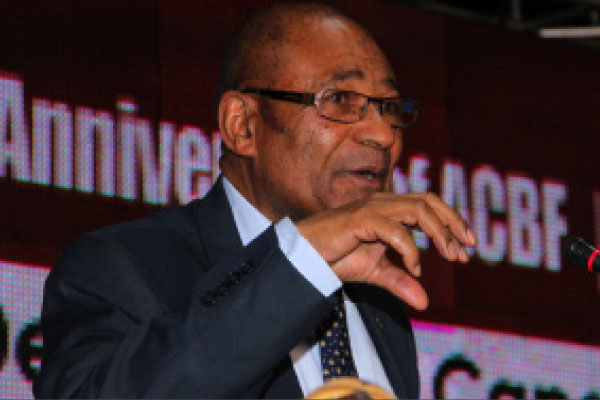
ACCELERATED inclusive and transformative real growth with equity is imperative in order for Africa to get inclusive and sustainable socio-economic development, an African Union (AU) official has said.
BY TATIRA ZWINOIRA
Speaking at the Third Pan-African Capacity Development Forum yesterday in Harare, AU Commissioner for Economic Affairs Anthony Mothae Maruping said building requisite capacity was a key issue that must be adequately addressed.

“Capacity is a necessary ingredient. Building requisite capacity is a key issue that must be adequately addressed. Accelerated, inclusive, transformative real growth with equity is no longer an option but an imperative for Africa in order to, in a significant way, create jobs, tackle poverty and gain rapid resilient inclusive and sustainable socio-economic development,” Maruping said.
“Diversification and value addition would result in an accelerated, inclusive, job creating growth and economies that are more resilient to external and, indeed even internal shocks. Volatility in the international financial markets, especially the rise of interest rates in the United States, led to an increase in dollar denominated debt.”
Studies by the African Capacity Building Foundation (ACBF) have shown that capacity in many African economies has started declining as a result of commodity shocks, from the external price fluctuations, and the strengthening of the United States dollar.
The 2015 ACBF Africa Capacity Report showed that the majority of African countries have a medium capacity of 73,3% with 17, 8% in the high bracket, while 8,9% are in the low bracket as a direct result of policy design and implementation.
This has been especially true in Zimbabwe where the over reliance of the United States dollar has created a higher demand over supply.
- Chamisa under fire over US$120K donation
- Mavhunga puts DeMbare into Chibuku quarterfinals
- Pension funds bet on Cabora Bassa oilfields
- Councils defy govt fire tender directive
Keep Reading
ACBF executive secretary Emmanuel Nnadozie said studies conducted by his organisation have suggested that capacity deficiencies remained a binding constraint to Africa economic and social transformation.
“Our continent is still facing youth unemployment, poverty, low industrialisation, declining commodities prices and poor infrastructure development. The question is why? The central issue, according to various studies, including those by ACBF is primarily the lack of capacity. Therefore capacity deviancies remain a binding constraint to Africa economic and social transformation,” Nnadozie said.
“This is both with regard to policy design and implementation. What our continent needs is to transform its economies to create wealth and jobs significantly reduce poverty, minimise all types of inequalities, strengthen productive capacities enhance social conditions of its people and achieve sustainable development.”
The Third Pan-African Capacity Development Forum opened in Harare yesterday and will run up to May 5 in which stakeholders from the public and private sectors across Africa are meeting to discuss how to better capacitate Africa. The forum coincides with the ACBF’s silver jubilee celebrations.











